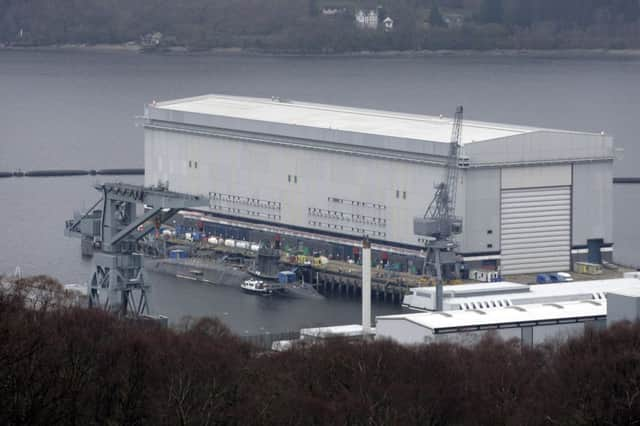Scaled back Trident fleet would remain “credible”


A report published by the Royal United Services Institute (RUSI) military think tank argues the UK does not need to have at least one nuclear missile submarine always at sea to be sure of deterring a nuclear attack.
Ending the so-called continuous-at-sea-deterrent (CASD) would mean the Royal Navy’s Trident submarine fleet could be scaled back saving billions of pounds, the paper said.
Advertisement
Hide AdAdvertisement
Hide AdThe Conservatives are currently committed to a like-for-like replacement for the existing four-boat fleet needed to maintain round-the-clock patrols - at an estimated cost of £20 billion - if they win the next general election, while Labour also supports CASD.
However, following a review of the options for renewing the deterrent last year, the Liberal Democrats said that in the post-Cold War era, CASD was no longer necessary and they would only build three new submarines.
The policy was branded “naive” by Defence Secretary Philip Hammond who accused the Lib Dems of taking a “huge gamble” with national security.
However the paper, by RUSI analyst Hugh Chalmers, said that even if there was not always a submarine on patrol, it would still represent a powerful deterrent to an aggressor.
“Despite criticism that non-continuous postures would create a ‘part-time deterrent’, even an inactive fleet of submarines can help to deter actors from seriously threatening the UK,” it said.
“If it were seen to be capable of deploying its nuclear forces in a crisis, the very existence of such a force could have the effect of dissuading a potentially hostile state from threatening or blackmailing the UK and its allies.”
While the paper acknowledged that abandoning CASD could create “unnecessary risks”, at a time of “strained” defence budgets and limited public support for the nuclear status quo, it said that it should be subjected to a cost-benefit analysis.
It said that while the UK remained a member of Nato, was able to call on robust conventional forces and retained the ability to reconstitute its current nuclear strength, any threat to its “vital interests” would only require a deployed nuclear deterrent on “rare occasions”.
Advertisement
Hide AdAdvertisement
Hide Ad“In this case, if the UK can implement a flexible structure in which to operate a non-continuous nuclear force without sacrificing any financial or political gains it hopes to make, a step away from CASD could be one of several legitimate pathways in the UK’s nuclear future,” it said.
SEE ALSO: